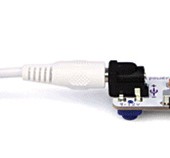Last summer, Bloomberg BusinessWeek devoted an entire issue to “What Is Code?” a single article by Brooklyn-based writer and programmer Paul Ford. Ford’s breakdown of key concepts pulls back the curtain on the fundamentals of computer programming and makes a compelling argument that any smart person can learn the basics—and that the basics are worth learning even for those who aren’t planning to become professional coders. It is, in part, a case for coding as a new frontier in digital literacy. There’s a growing interest in this type of education among kids, teens, businesspeople, career changers, and the generally curious. And a growing number of public libraries are already responding to this need within their communities. Here’s a look at ways in which a few libraries have made their programs a success.
Evolution of a Maker Space, From “Monstie Stuffie” Projects to a Giant Catapult
By on June 11, 2015
Colleen Graves, SLJ Maker Workshop speaker and 2014 School Librarian of the Year Finalist, describes how her little middle school library maker space grew to encompass an inter-school catapult challenge, an international network, and the support and enthusiasm of teachers.
Ready to Learn Coding? Here are resources. Plus: Teaching with Scratch| The Maker Issue
By on May 11, 2015
SLJ Reviews LittleBits: These bright, appealing sets encourage tinkerers to explore electronics
By on February 11, 2015

Imagine if building a flashlight was as easy as stacking blocks, or that you could build a robot with a shoebox, nine-volt battery, and a pile of components small enough to fit in the palm of your hand. Enter LittleBits, a modular, à la carte electronics prototyping platform for users of all skill levels

